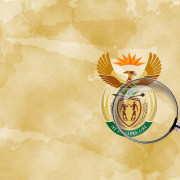|
Getting your Trinity Audio player ready...
|
 By Lorraine Louw
By Lorraine Louw
In part two of our three-part series on how much corruption is really costing South Africa, we reveal how financial misconduct is costing the country more and more every year. What is especially worrying is that it often goes unchecked and unpunished.
The real cost of corruption – part one
In a report released a few months ago, Peter Allwright, the senior forensics manager at law firm Edward Nathan Sonnenbergs, says: “Financial misconduct in the public service cost taxpayers R346-million in 2009/2010, 87 percent of which was never recovered. 2011/2012 brought even worse news, with that number shooting up t R930-million.”
Allwright points out that the Public Service Commission (PSC) publishes annual findings of criminal proceedings instituted against officials found guilty of financial misconduct. In 2009/2010, no criminal action was taken in 57 percent of cases; 2010/2011, no criminal action was taken in 76 percent of cases. The PSC also publishes annual findings on the extent of financial misconduct reported by the public service. In its Report on Financial Misconduct for the 2009/2010 Financial Year, 1 135 incidents of financial misconduct were reported. These were fraud (53 percent), financial mismanagement (17 percent), theft (12 percent), and misappropriation and abuse (10 percent).
The most troublesome finding, Allwright says, is that there appears to be no meaningful consequence. “Although 88 percent of officials were found guilty of misconduct in the cases, the most common sanction for financial misconduct was a final written warning (43 percent). Only 19 percent of officials found guilty of financial misconduct were discharged from the public service. The majority of perpetrators remain in their positions and often continue to commit financial misconduct.”
More troubling, the losses from the finalised cases of financial misconduct totalled R346-million, and only 13 percent of this amount was recovered from officials (R44-million) while 87 percent remained lost to the public service (R302-million), he reports. And the trend is upwards. The PSC reported that financial misconduct grew from R100-million in 2008/2009 by 346 percent to R346-million in 2009/2010 and then soared another 269 percent to R932-million in 2010/2011. It estimates that financial misconduct for 2011/2012 could exceed R1-billion.
Council for the Advancement of the South African Constitution
In an earlier report, published in August 2011, the Council for the Advancement of the South African Constitution (Casac) said that the former National Party claimed that between 1994 and 1998 the government lost up to R20-billion as a result of corruption by government employees. Under Judge Heath, in 1998, the SIU claimed that the R10-billion worth of fraud it was investigating at the time was just 5 percent of the total.
Surveys suggested that perceived levels of corruption increased from 1996 to 2000, said Casac. One survey found that 11 percent of participants had been expected to bribe a government or public official to receive a job or basic service. The National Anti-Corruption Hotline was set up in September 2004; by March 2008, 4 202 cases of alleged corruption had been reported to the Public Service Commission. According to the government, R86-million was recovered through successful investigation and disciplinary procedures, it said.
“Many studies show the extent to which funds that should have been spent on the country’s poor are misused. A study on Corruption and Social Grants conducted by the Institute for Security Studies (ISS) reveals that in 1996 about R1.5-billion a year was lost through corruption and maladministration in the delivery of social grants. At the time this amounted to 10 percent of the annual welfare budget of R11-billion,” said Casac.
A study by the Mail & Guardian in February 1997 reported that R1-billion was being lost to pension fraud a year. The social security budget at the time was R14.3-billion. In 1999, the Department of Social Development estimated that it was losing close to 10 percent of its R20-billion budget to social grant fraud.
Casac reported that the former minister of social development, Zola Skweyiya, stated that about R15-billion which had been allocated to pensions, social grants and other means of poverty alleviation was lost to corruption between 1994 and 2004.
A more recent study by the Institute for Security Studies showed R1.4-billion was lost to fraud in 2006 out of a total social security budget at the time of R57-billion. “The Minister of Human Settlements Tokyo Sexwale has said about 20 problematic housing projects worth R2-billion have been identified. He further revealed that the investigation into abuse of the low-income housing subsidy scheme has led to more than 1 570 arrests and 1 189 convictions.”
Public Service Commission
The PSC held a roundtable discussion on financial misconduct in February 2013, at which it gave figures on the cost to the country. The number of cases and cash involved is increasing, despite the efforts being made to clamp down on fraud and corruption.
In 2006/7, there were 1 042 cases, amounting to R130.6-million; in 2007/8, there were 868 cases, amounting to R21.7-million; in 2008/9, there were 1 204 cases, amounting to R100.1-million; in 2009/10, there were 1 135 cases, amounting to R346.5-million; in 2010/11, there were 1 035 cases, amounting to R932.3-million; in 2011/12, there were 1 243 cases, amounting to R229.9-million.
In 2009/10, there was unauthorised expenditure among six national government departments amounting to R802-million. That year there was also irregular expenditure in 34 national government departments amounting to R2.3-billion, and fruitless and wasteful expenditure in 28 departments amounting to R1.6-billion.
Since 2005, the PSC has analysed the trends of complaints lodged with it by members of the public and public servants through the National Anti-Corruption Hotline (NACH) and its Complaints Rules. The complaints range from poor service delivery related to alleged corruption practices in the Public Service.
In its Trends Analysis Report from 2005 to 2010, it found that in the 2009/2010 financial year, 279 complaints were lodged with the PSC, a 13.3 percent decline compared to the 322 complaints lodged during the 2008/2009 financial year. At 56 percent, the majority of these complaints implicated national government departments.
The cost of financial misconduct is also monitored by the PSC. In its most recent report, released in 2011, Report on Financial Misconduct for the 2009/2010 Financial Year, the commission said a total of 1 135 finalised cases of financial misconduct were reported for the financial year, of which 286 (25 percent) were reported by national departments and 849 (75 percent) by provincial departments. It also reported that of fraud comprised 52.9 percent, or 600 of the overall number of cases reported by the departments, slightly down from the previous financial year, when this category accounted for 53 percent of the total number of the reported cases.
Employees were found guilty of misconduct in 998, or 88 percent of the finalised cases, up from 86 percent in the previous year, when 1 037 officials charged with financial misconduct were found guilty.
But most telling, is the cost of financial misconduct. “The total cost reported by national and provincial departments emanating from unauthorised, irregular, fruitless and wasteful expenditure, as well as losses resulting from finalised cases of financial misconduct in respect of the 2009/2010 financial year was R346 529 669.39,” reported the PSC.
According to the reports submitted by national and provincial departments, R44 384 029.72 (12.8 percent) was recovered from the employees found guilty of financial misconduct. Some R302 145 640.12 (87.2 percent) had not been recovered at the time of reporting to the PSC.
And more worryingly, the commission pointed out that there was a 346.1 percent increase in the cost of financial misconduct in the 2009/2010 financial year from R100 111 076.82 in the 2008/2009 financial year (of which only R9 946 013.83, or 9.9 percent, was recovered from the employees found guilty of financial misconduct), to R346 529 568.20 in the 2009/2010 financial year. It was the highest in five years, and almost equal to the cost reported in the 2002/2003 financial year of R331 213 430.00.
“Although the number of finalised cases of financial misconduct went down from 1 204 in the 2008/2009 financial year to 1 135 in the 2009/2010 financial year, the cost of financial misconduct has increased substantially,” said the commission. “This shows a disturbing trend among people who should be custodians of the public purse.”
Amount lost to unauthorised, irregular, fruitless and wasteful expenditure:
- 2009/10: R346 529 568.20
- 2008/09: R100 111 076.82
- 2007/08: R 21 776 948.93
- 2006/07: R130 615 994.82
- 2005/06: R45 649 391.00
- 2004/05: R120 497,731.02
- 2003/04: R20 351 101.88
- 2002/03: R331 213 430.16
- 2001/02: R4 176 757.20
Cash recovered:
- 2009/10: R44 384 029.72, or 12.8 percent
- 2008/09: R9 946 013.83, or 9.9 percent
- 2007/08: R 8 805 596.00, or 40 percent
- 2006/07: R20 838 681.74, or 16 percent









